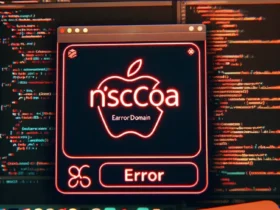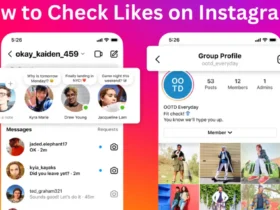Hardest Languages to Learn for English Speakers
In the globe nowadays there are many thousand languages spoken. Throughout the world, many people speak a second or third language. However, Spanish and French, the most frequently taught languages, are extremely similar to English. What are the Hardest languages to learn for English speakers? Also, should I make an effort to learn foreign languages?
Our globe is becoming more and more linked, and the world’s people bridge national, social, and language barriers quickly. Language is an essential instrument for bridging cultural barriers.
Reasons to Study Hardest Languages to Learn for English Speakers?
Language offers the key to the expansion of work and education, to an increase in the interchange of ideas and information, and, of course, to appreciate the beauty of different cultures.
You have no reason to avoid studying Chinese or Hindustani. Even though everyone is different, they learn at various speeds and have distinct pronunciations.
They also seem to be the greatest way to learn and to communicate. You can master any language with the proper mindset, study methods, and assistance. Get to know the top 5 hardest languages to learn for English speakers.
Arabic
- Script: Arabic
- Spoken Countries: Main Language of 31 Countries.
- Is it tonal? Thankfully, no.
The greatest difficulty in Arabic is the script, which usually has four distinct forms depending on the location in which they are situated. It is the hardest language to learn in 2021.
In contrast to many other languages, the verb precedes the subject and subject of a phrase and creates additional difficulty. The present geopolitical scenario also places a significant need for interpreters in Arabic.
Arabic is a significant language around the globe. Because it is also the Islamic language, there are individuals throughout the globe who can speak Arabic. And it even has an alphabet, unlike Chinese! However, for English speakers, Arabic is also very difficult.
Although Arabic employs an alphabet, the Latin alphabet we use in English is totally different. The Arabic letters are quite diverse and alter their shape depending on whether they’re written alone in the midst of a word, at the beginning of a word, or at the end of a word. And Arabic is written to the right, totally contrary to English.
Even if you go outside the writing system, Arabic has certain difficulties. There are numerous distinct Arabic dialects. Modern Standard Arabic, the dialect used in international or commercial settings, is the formal dialect.
But this is not what most people are talking about. Each area and nation have its own Arabic form, and these forms may be very different from and from the modern standard of Arabic.
Also, in Arabic, you have to alter the whole structure of the word, adding additional vowels and consonants when you conjugate a verb. This is very distinct from most English verbs and may be used to.
Japanese
- Scripts: Katakana, Hiragana, and Kanji
- Spoken Areas: Palau, Japan
- Is It tonal? Fortunately, no.
Unlike many other languages, Japanese is not written in the same way as it is spoken, so you cannot learn how to speak by learning to write it and can’t learn to write it by learning to talk. You should work hard to learn how to speak and write Japanese correctly.
When you do, you’ll discover that Japanese utilizes a significant number of English and Romantic loanwords. When you see Japanese, you will understand that it is one of the Hardest Languages to Learn.
It’s not tonal, and most of the language is pretty easy to pick up in the broad scheme of things.
Studies have nevertheless revealed that Japanese is the only language English people learn for the longest time.
Mandarin
- Spoken Country: Mainland China and Taiwan
- Script: Logographic
- Direction: Top-to-bottom, columns right to left (traditional), Left-to-right (modern).
Mandarin is quite helpful. China is developing an economic behemoth that integrates its 1,3 billion people into the global economy.
But Mandarin Chinese has certain characteristics that are challenging to accommodate for most English speakers. Mandarin first utilizes tones to transmit meaning. In English, whether we pose a question or make a joke, we may have a particular tone.
The tone of the Mandarin is a considerably more essential element of the Mandarin. Each word has a certain tone, and altering a word’s tone may turn it into a whole new term.
The pictographic writing system is the second main obstacle to Mandarin. Instead of utilizing letters to create words, a collection of pictographs is used in Chinese languages.
These pictographs are symbols, like letters, but you can’t actually hear anything, and there’s no alphabet. You have to remember a unique collection of glyphs for every word. Perhaps it sounds like you are learning two languages at once.
Korean
- Spoken Country: Korea
- Script: Hanja (rare) and Hangul
- It is not tonal
It may seem rather daunting to learn a foreign language yourself, particularly when you select a language that is so different from your mother tongue. Korean, as well as other Asian languages, seem to most English speakers to be extremely exotic.
During King Sejong’s reign in 1446, the alphabet of the Korean language, which was called Hangeul, was created. This alphabet consists of 14 fundamental consonants and ten fundamental vowels.
The form of the consonants is similar to the form of the mouth when the sound is uttered. Because letters with comparable sounds have similar forms, it is not difficult to memories and master Hangeul.
The 10 basic vowels found in the Korean alphabet are then combined to make new vowels called Double Vowels. These vowels can be combined in a number of different ways.
However, no more than two can create a new combination. The Korean language has 11 double vowels, so after adding the 10 basics, we get a total of 21 vowels.
Polish
- Spoken Regions: Poland, Czech Republic, Slovakia, Hungary, Germany, Lithuania, and others.
- Direction: Left to Right.
- Script: Latin
Polish has also evolved from a separate language family to English and is thus harder for English speakers to master. This language includes a lot of minor variations in pronunciation, which English speakers typically find difficult to perceive first.
Additionally, the Polish grammar system is also very complex since it uses a case system that determines, in many instances, the meaning of adverbs.
For example, if there is an item behind a door in English, the connection between both things is defined by the “hind” preposition, while in Polish, there are many distinct meanings for “door,” depending on the relation in the sentence.
These are the Hardest languages to learn for English speakers, as far as we are concerned. While language acquisition usually includes ups and downs, these may be a little difficult. But that does not imply that you cannot learn for those who are ready to do the job.








Leave a Reply